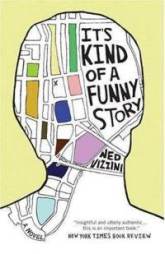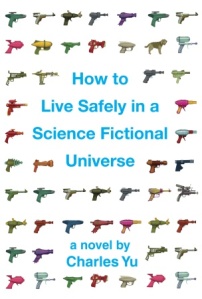 The Twelve by Justin Cronin is a difficult book to talk about without considering its context. Taken as a single novel, it’s somewhat derivative and narratively unsatisfying. Taken as the middle chapter of a longer story, one begun with 2010’s The Passage, The Twelve finds some life. There are moments are brilliance in the book, and some truly great plays on horror tropes, but by the end of it I was left wondering what it had all been for.
The Twelve by Justin Cronin is a difficult book to talk about without considering its context. Taken as a single novel, it’s somewhat derivative and narratively unsatisfying. Taken as the middle chapter of a longer story, one begun with 2010’s The Passage, The Twelve finds some life. There are moments are brilliance in the book, and some truly great plays on horror tropes, but by the end of it I was left wondering what it had all been for.
The Passage told the story of a viral plague that turned twelve death row inmates into immortal “virals,” (read: vampires), who break out of their holding facility and, by attrition, more or less murder the entire North American continent. The Passage’s opening sections were told in our historical present, then the story flashed forward to a period 100 years after, which is where the primary action of the novel took place.
The Twelve, ostensibly a sequel, strangely backtracks to those early days, introducing us to a new cast of characters dealing with the viral outbreak. This first section accounts for roughly the first third of the book. Cronin’s portrayal of the recently destroyed world is incredible, mixing the dead-on description of Stephen King’s The Stand and the melancholy lyricism of Cormac McCarthy’s The Road.
In this way, The Twelve’s structure mirrors that of The Passage. However, when the previous novel shifted forward in time, it was jarring and unsatisfying because most of the characters Cronin had spent a hundred or so pages developing had a trivial impact on the events of the much longer future story. That’s not the case in The Twelve. Over the novel’s first third, we are introduced to several geographically displaced characters. Over time, their story lines begin to converge. The stories of these characters have significant ripples in the novel’s later sections.
Sadly, the first third of the novel is by far the best part. From there, the story flashes forward again, first to a tragic event that occurred roughly seventy-five years after the outbreak, then to about 100 years after the outbreak. This convoluted chronology basically means that the main action of The Twelve occurs roughly five years after the primary action of The Passage.
If you are at all like me, it has been two years since you read The Passage (and, to be clear, if you have not read the first novel, you will get almost nothing out of this one). Two years isn’t that long, but I found myself going to Wikipedia to remember exactly who in the novel’s enormous cast was who, and what they had done in the first book. The Twelve does include a brief summary of events at the beginning, but I still felt adrift. This is partially my fault as a reader, but it also points to just how much stuff there is going on in this book. Worse, we aren’t picking up with these characters immediately after The Passage. Five years have passed, and Cronin largely leaves it up to context clues to fill in the narrative gap between the stories. Characters are not where we remember them, but their backstories are still vitally important to understanding their current situations.
I would have forgiven all of this is the story had gone somewhere interesting, but it kind of doesn’t. Peter, the de facto protagonist of the first novel, is now a member of the Expeditionary, a sort of militaristic organization under the rule of a democratic republic in what used to be Texas. Alicia, who is also now a half-vampire “new thing” after the events of The Passage, goes on a secret mission to Iowa, to investigate claims of a human settlement there. Peter, through various plot machinations, also ends up on the hunt for this city. Exactly what this city is and what those who live there are planning is the central conflict and mystery at the heart of the story, and it feels sadly underdeveloped, especially in comparison to the rich opening sections.
This new city is the source of much of what is new about The Twelve, and I’m sad to say that it’s mostly a predictable bore. The overseer of this city is a character from the novel’s opening section, and while it is fascinating to see how a character I thought was fantastic in the opening section changed over a century, I was left wondering exactly what his deal was. The city is a sort of militaristic totalitarian state, where people are forced to work on one of the many secret projects throughout the city. One of these, an enormous skyscraper that is implied to have some dark purpose, actually never figures into the action of The Twelve at all.
I have to assume that this plot point is being couched for the final book in the trilogy, but it is emblematic of what I think is the fundamental problem with this part of the story–it feels held back. When the curtain is pulled open and we see the kinds of people who govern this city, we find that they are tie-wearing bureaucrats, overseeing a collection of brutish non-characters who never get any characterization beyond behind obedient and sadistic. For many scenes, we see the main villain sitting in his office, looking over documents and other mundane activities that a pseudo-mayor would be expected to undertake. The point is that the city only feels malicious insofar as Cronin tells us that the city should feel malicious. It didn’t feel dangerous or especially thoughtful. Add in a ham-fisted storyline about an underground insurgency, and you have a collection of post-apocalypic tropes that don’t add up to anything novel or especially interesting. Even the mayor’s final plan, having to do with the original twelve virals, is so transparently a bad idea that the climax of the novel was more silly than affecting.
This very significant plot disappointment aside, I remain interested and invested in his series. I rolled my eyes a lot at Cronin’s language in The Passage. In between competently-written action bits, he would inject moment of lyrical interiority that seemed very self-consciously literary. Almost always, it rang flat or false, out of sync with the action and tone of the rest of the book. This problem is not as significant in The Twelve, though still present. There are stale, overly written sections, but then, sometimes on facing pages, I would find section that cut deeply into the heart of the characters, or that perfectly described a mood or setting. When Cronin’s language actually helps the story he’s trying to tell, it’s wonderful. But The Twelve is a very uneven book on a prose level. Some sections are beautiful, others, especially action sequences, seem so heavily edited as to almost resemble screenplays or storyboards.
And yet.
I am fascinated by this world. Cronin is managing an enormous story here, one that spans not only the hundred years since the viral outbreak but, as seen through bits of texts separating the sections, an entire millennium. Cronin is taking a huge risk in this series. And, sadly, some of those gambits don’t pay off. Huge sections of this novel, as well as it predecessor, seem overwritten, forced, or even unnecessary.
And yet.
I want to know more. I want to know where all this is going, if and how the viral plague will be eradicated, and which of these characters will be alive at the end to rebuild the world anew. This series, for all its obvious and significant faults, remains haunting. In these stories, the past matters, and, if you are not careful, it can come back to destroy you. In The Twelve, Justin Cronin has created a continuation of his dark story, and while I did not always love it, I never considered putting the book down. There is dark magic at the edges of these pages, and I have to know what happens.
The Twelve gets four pieces of lasagna. It’s far from a perfect novel, but it remains a fascinating glimpse into this weirdly familiar world.





 I’ve been thinking about this review for about a week and a half now, and despite really loving this book and loving to talk about Harry Potter, I don’t really have a whole lot to say. I’ll try to cover the major talking points that anyone discussing Deathly Hallows, but I’m mostly alright to just sit back, love on this book, and enjoy the ending of the greatest narrative of my generation. (And I know how I broke the cover picture pattern, but how could I not go with this one?)
I’ve been thinking about this review for about a week and a half now, and despite really loving this book and loving to talk about Harry Potter, I don’t really have a whole lot to say. I’ll try to cover the major talking points that anyone discussing Deathly Hallows, but I’m mostly alright to just sit back, love on this book, and enjoy the ending of the greatest narrative of my generation. (And I know how I broke the cover picture pattern, but how could I not go with this one?)
 Fair warning before I get into this review: Harry Potter and the Half-Blood Prince is my favorite book in the series. The earlier books spent so much time setting up a complex narrative, compelling characters, and (mostly thanks to book 5) a deep emotional reserve from which to draw, and Half-Blood Prince capitalizes on all of that. Further, while I’m all for thick books and long narratives, this book feels pointed and focused in a way that those around it tend not to. Order of the Phoenix gets a little too long for me, and even though I love almost all of Deathly Hallows, that too seems kind of overly stuffed. Anyway, you’ve been warned: I love this book a whole lot.
Fair warning before I get into this review: Harry Potter and the Half-Blood Prince is my favorite book in the series. The earlier books spent so much time setting up a complex narrative, compelling characters, and (mostly thanks to book 5) a deep emotional reserve from which to draw, and Half-Blood Prince capitalizes on all of that. Further, while I’m all for thick books and long narratives, this book feels pointed and focused in a way that those around it tend not to. Order of the Phoenix gets a little too long for me, and even though I love almost all of Deathly Hallows, that too seems kind of overly stuffed. Anyway, you’ve been warned: I love this book a whole lot.